
Top Enterprise Branding Agencies to Work With - February 2026
Enterprise branding has evolved significantly over the past year, becoming more data-driven, multi-channel, and experience-focused than ever before. As we enter February 2026, selecting the right enterprise branding agency is critical for organizations aiming to build relevance and resilience at scale.
While internal brand teams are expanding, enterprise branding agencies remain essential for their specialized expertise, ability to overcome bandwidth constraints, and cost-efficiency across complex initiatives. Below, we uncover the top 10 enterprise branding agencies leading the industry and delivering measurable value for global organizations.
Top 10 Enterprise Branding Agencies
1. G & Co.
G & Co. is a strategy-led enterprise branding agency known for helping global organizations define, reposition, and scale their brands through data-driven enterprise brand strategy and management. Specializing in enterprise brand repositioning, enterprise brand strategy services, and enterprise brand management, G & Co. supports Fortune 500 and high-growth companies across sectors like fashion, retail, hospitality, and healthcare with brand transformation, positioning architecture, and full-scale identity systems.
By uniting insights, storytelling, and experience design, G & Co. delivers integrated enterprise brand development and positioning strategies that align internal teams and drive external recognition.
G & Co. is a minority business enterprise (MBE), as certified by the National Minority Supplier Development Council (NMSDC). If diversity inclusion is a part of your supplier process, contact us—we may be a great fit for your enterprise.

2. Tangible Brand Consultants
Tangible Brand Consultants is a Singapore-based enterprise branding agency delivering enterprise brand strategy and management through research-backed insights and creative alignment. With clients such as SingHealth, Pacific International Lines, and the Civil Aviation Authority of Singapore, Tangible leads enterprise brand repositioning initiatives across Southeast Asia with a focus on organizational alignment and business impact.
They specialize in building culturally attuned brand strategies that support both internal transformation and market differentiation through holistic enterprise brand development.
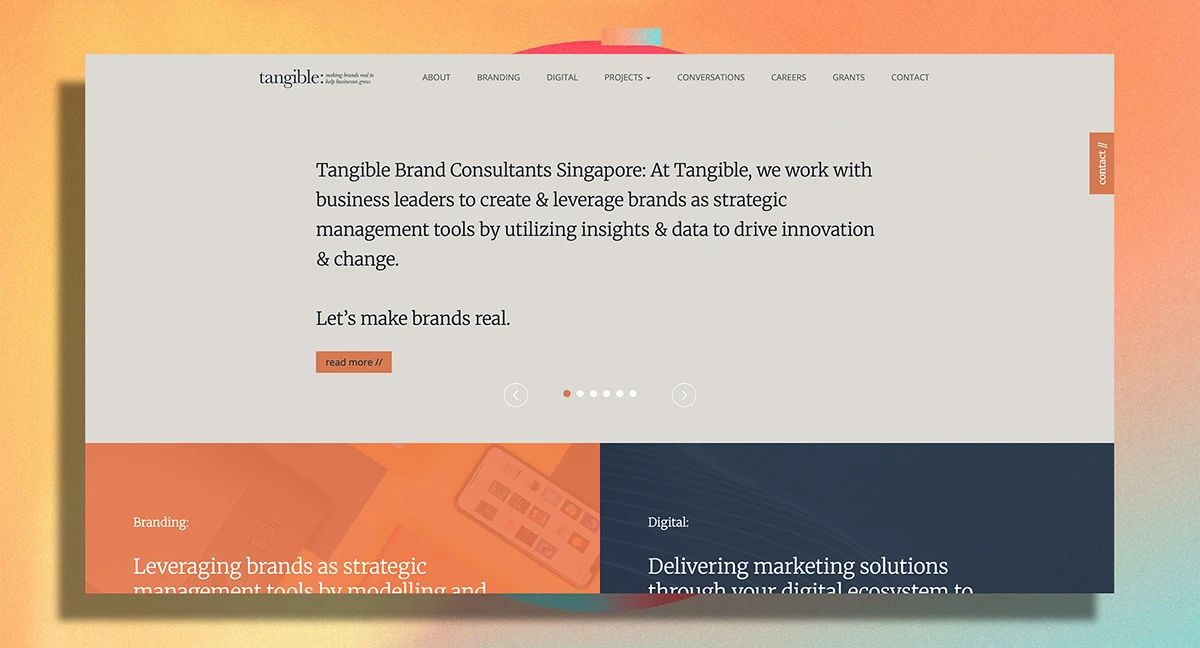
3. Catchword
Catchword is a naming-first enterprise brand development agency that integrates naming, messaging, and enterprise brand strategy into unified brand systems. With clients like Amazon, Canon, and Uber, the firm is recognized for shaping enterprise naming architecture and verbal identity as part of broader enterprise brand management.
Their work helps organizations clarify brand voice, simplify architecture, and create scalable naming systems that support global enterprise positioning and storytelling.

4. Huncwot
Huncwot, based in Warsaw, blends digital design with strategic storytelling to offer comprehensive enterprise brand repositioning and visual identity development. The firm serves cultural and institutional clients with immersive digital branding rooted in high‑impact creative direction and enterprise brand strategy services.
Their strengths lie in experience-led branding and motion design that energize traditional enterprise brand development agency work with forward‑looking design execution.
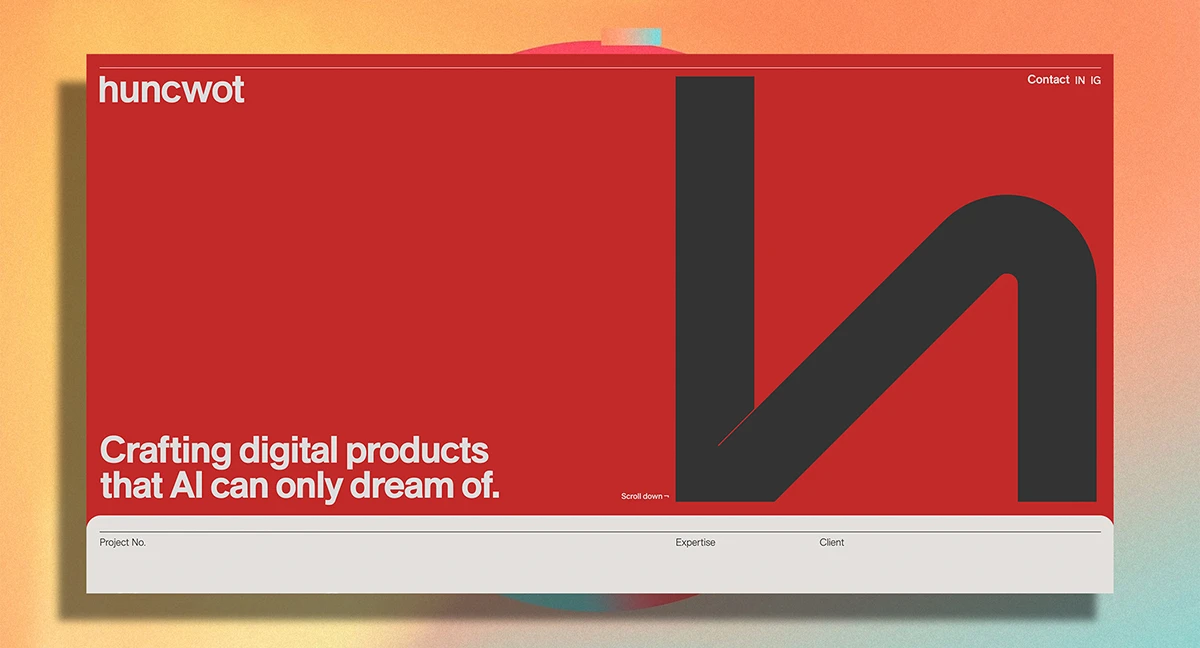
5. Monopo
Operating between Tokyo and London, Monopo is a cross-cultural enterprise branding agency delivering visual identity, brand messaging, and digital experience for startups and enterprises alike. The agency leads enterprise brand positioning and strategy for companies like Ghost and Quest Portal through collaborative processes and narrative development.
They are known for crafting contemporary enterprise brand strategies that bridge local nuance and global reach for tech-forward and culturally resonant brands.

6. Studio Dumbar
Studio Dumbar (Rotterdam) is a design-driven enterprise brand development agency focused on building expressive identities with motion and sound at their core. Now part of DEPT®, they offer enterprise brand strategy services, identity systems, and brand transformation initiatives for institutions and public-sector organizations.
They bring innovation to enterprise brand repositioning by leveraging dynamic, multi-sensory branding that brings internal culture and external perception into alignment.

7. Outcrowd
Outcrowd is a US-based enterprise branding agency serving startups and growing digital businesses through accessible and effective enterprise brand strategy services. Known for helping lean teams define and scale their brand identities, Outcrowd focuses on messaging, user personas, and design systems that enable strong enterprise brand positioning.
They are particularly adept at providing high-value support for early-stage enterprise brands needing clarity, consistency, and growth-ready branding foundations.
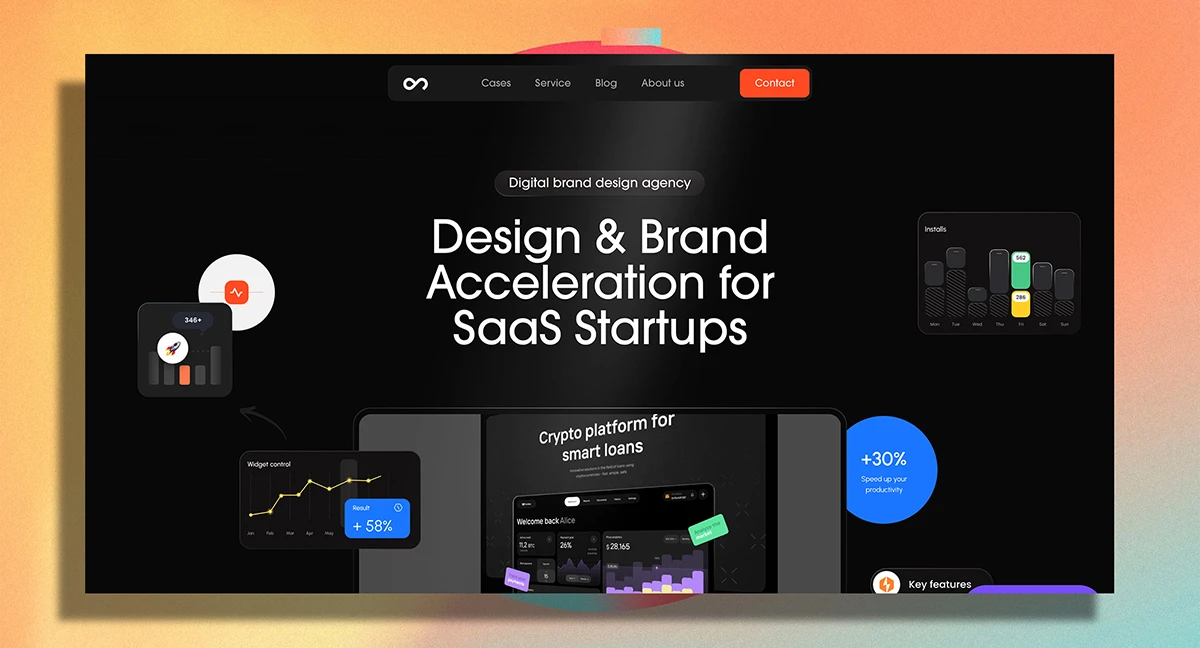
8. The Branx
The Branx, headquartered in Spain, helps technology and B2B companies shape brand identities through lean, insight-driven enterprise brand development. From naming to messaging and visual identity, The Branx delivers enterprise brand repositioning and enterprise brand strategy tailored to growth-stage and enterprise clients like AstrumU.
Their collaborative process ensures that every touchpoint aligns with a unified enterprise brand management system that scales with business goals.
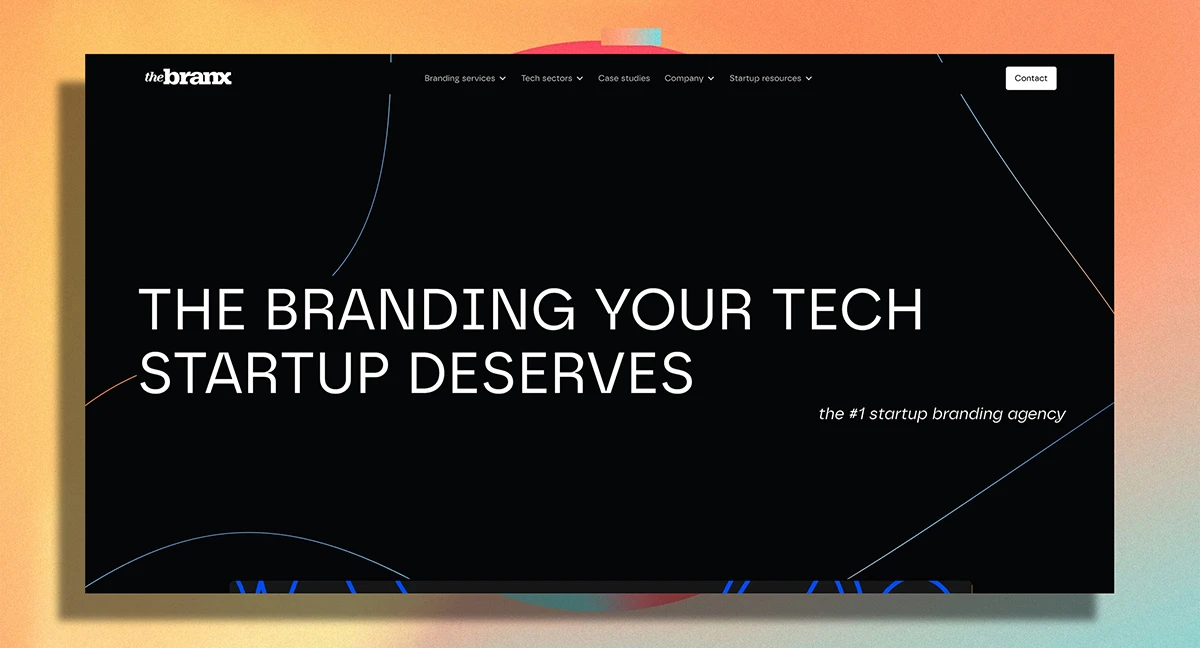
9. Ragged Edge
Ragged Edge is a London-based enterprise branding agency known for bold rebrands and challenger positioning strategies. They help organizations reframe their market identity through differentiated enterprise brand strategy, with work spanning travel, food, consumer goods, and financial services.
The firm specializes in high-impact enterprise brand repositioning initiatives that create emotional connection and break through category conventions.
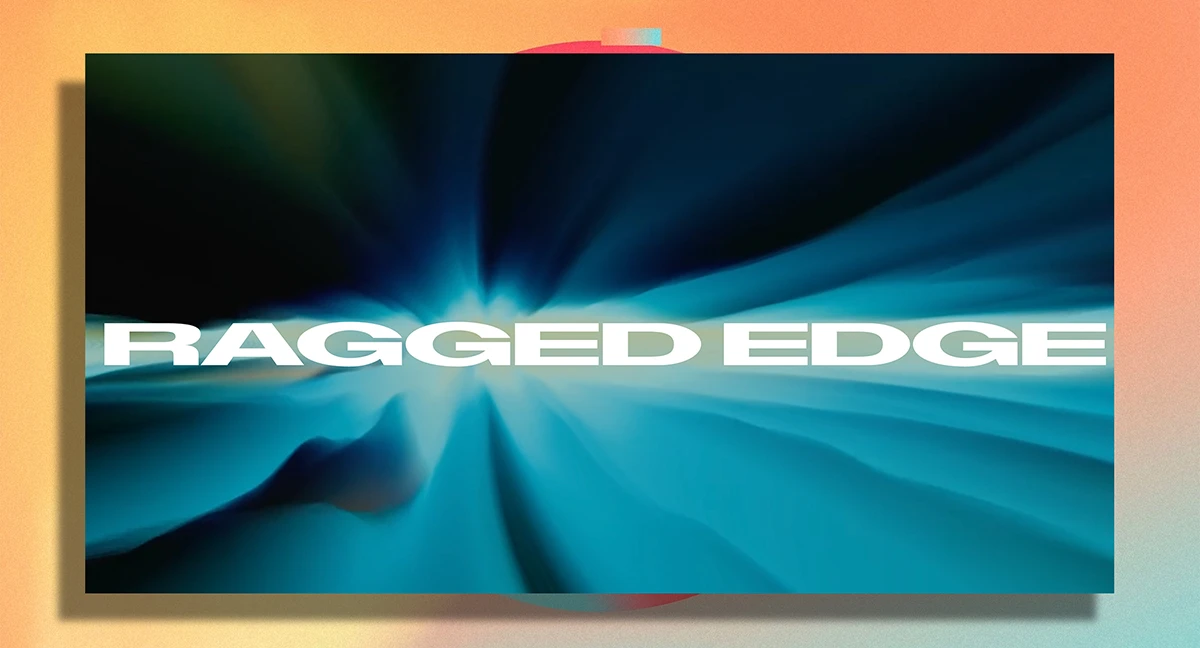
10. KISS Communications
KISS Communications, based in Cambridge, UK, serves B2B and science-led companies with a straightforward approach to enterprise brand strategy and management. Their offering includes brand identity, messaging, and content aligned with sales and marketing functions across healthcare, tech, and education sectors.
Known for simplicity and clarity, KISS delivers outcome-focused enterprise brand strategy services that support long-term enterprise brand management and positioning.

What Is Enterprise Branding Strategy?
Enterprise branding strategy is the structured approach an organization takes to define, position, and manage its brand across large-scale operations, multiple business units, and diverse stakeholder groups. It encompasses core elements such as brand architecture, value proposition, visual identity, messaging frameworks, and internal brand alignment—all designed to ensure consistency and impact at every level of the enterprise. Unlike consumer or product branding, enterprise brand strategy focuses on unifying the organization’s identity and voice across regions and departments while supporting long-term growth, competitive differentiation, and stakeholder trust. Effective enterprise brand strategy and management are essential for driving coherence across touchpoints, supporting mergers or expansions, and enabling scalable enterprise brand repositioning in response to market shifts.
How Does Enterprise Branding Strategy Work?
Enterprise branding strategy works by aligning business objectives with a clear and scalable brand identity that resonates across internal teams, partners, and global markets. The process typically begins with in-depth research and stakeholder interviews to uncover brand perceptions, market position, and competitive context, which inform the development of a comprehensive enterprise brand strategy framework. This includes defining the brand’s purpose, voice, positioning, and architecture, followed by the implementation of brand systems, guidelines, and activation plans. A strong enterprise brand strategy and management plan enables consistent messaging and design execution across all business units, while providing the flexibility needed for localization or product-specific adaptation. Ultimately, it ensures the brand remains differentiated and relevant as it evolves, often requiring ongoing enterprise brand repositioning and refinement.
What Is an Enterprise Branding Agency?
An enterprise branding agency is a specialized firm that partners with large organizations to develop, manage, and evolve comprehensive branding strategies at scale. These agencies provide a full suite of enterprise brand strategy services, including brand audits, stakeholder research, brand architecture, naming, visual identity, messaging, and internal engagement. With expertise in enterprise brand development, an enterprise branding agency ensures consistency and impact across regions, channels, and divisions while supporting complex initiatives such as rebrands, mergers, or digital transformations. By serving as a strategic partner, the agency helps organizations implement enterprise brand strategy and management systems that are tailored to business goals, drive alignment, and enable long-term enterprise positioning and growth.
An enterprise branding agency plays a critical role in shaping and managing the brand identity of large-scale organizations through comprehensive and strategic solutions. With deep expertise in enterprise brand strategy, enterprise brand management, and enterprise brand development, these agencies offer the tools and insight needed to position a brand effectively across multiple markets, business units, and audiences. Whether supporting enterprise brand repositioning, refining enterprise brand strategy and management systems, or creating unified brand architecture, a specialized partner brings the strategic rigor and creative execution necessary to drive consistency, clarity, and impact at scale. The following section outlines the core capabilities an enterprise branding agency brings to support transformational branding outcomes and long-term enterprise positioning.
What Services Do Enterprise Branding Agencies Provide?
Brand Audits & Assessments
Enterprise branding agencies conduct comprehensive brand audits to evaluate the current state of a company’s brand architecture, messaging, design consistency, stakeholder perceptions, and competitive position. These audits inform the development of targeted enterprise brand strategy services by identifying strengths, gaps, and opportunities for enterprise brand repositioning and strategic alignment. The assessment process is critical for guiding future decisions related to enterprise brand management and long-term brand value.
Enterprise Brand Strategy Development
Enterprise brand strategy development is at the core of what an enterprise branding agency provides. This service includes defining brand purpose, vision, positioning, values, and messaging frameworks tailored to complex, multi-unit organizations. Through stakeholder research, market analysis, and strategic planning, the agency builds a brand blueprint that informs all downstream communications and experiences. A robust enterprise brand strategy ensures alignment across internal teams and external audiences while enabling consistent, scalable implementation.
Enterprise Brand Repositioning
For companies navigating transformation, expansion, or market disruption, enterprise brand repositioning is essential. An enterprise branding agency works closely with leadership to redefine how the brand is perceived—internally and externally—while preserving its core identity. This repositioning can involve rearticulating the value proposition, updating messaging and visual identity, or evolving brand architecture. Effective enterprise brand repositioning enhances relevance, differentiation, and cohesion across global markets and stakeholder groups.
Brand Architecture & Portfolio Strategy
Managing complex product and service portfolios requires a clear and scalable enterprise brand architecture. Enterprise branding agencies help clients design systems that define relationships between corporate, sub-brands, products, and services, ensuring consistency and clarity across all touchpoints. Whether implementing a branded house, house of brands, or hybrid structure, this service is foundational to enterprise brand management and supports efficient resource allocation, naming conventions, and cross-brand synergy.
Visual Identity Systems
A strong visual identity system brings the enterprise brand strategy to life through design. Enterprise branding agencies create scalable, flexible visual systems—logos, color palettes, typography, iconography, and digital design standards—that reflect the brand’s essence while allowing for localization and application across formats. These systems support unified execution across departments, geographies, and platforms, reinforcing the organization’s credibility and strategic enterprise positioning.
Messaging & Verbal Identity
Enterprise branding agencies craft verbal identity systems that include tone of voice, messaging hierarchies, key narratives, and tailored messaging for specific audiences or channels. This service ensures that the brand communicates with clarity, consistency, and purpose at every level of the organization. Effective messaging strengthens enterprise brand strategy, supports employee alignment, and enhances engagement with external stakeholders, including customers, investors, and partners.
Internal Brand Engagement & Training
Enterprise branding efforts succeed when they are embraced internally. Agencies deliver training programs, internal launch campaigns, and brand playbooks to drive employee understanding and alignment with the enterprise brand strategy. This service enhances cultural adoption and ensures that all teams—from executive leadership to customer service—represent the brand consistently. Internal brand engagement is essential to enterprise brand strategy and management that sustains long-term brand health.
Brand Governance & Management Systems
Enterprise branding agencies implement systems and guidelines that ensure long-term enterprise brand management. This includes brand governance models, approval workflows, brand centers, and digital asset management tools that help organizations maintain control and consistency. Effective governance supports brand integrity across markets and teams, providing a foundation for scalable growth, ongoing enterprise brand strategy services, and future enterprise brand development.
Naming & Nomenclature Systems
Naming is a critical aspect of enterprise brand development, especially in organizations with extensive product lines, services, or regional markets. Agencies offer naming strategy, naming creation, linguistic checks, and global trademark screening, often supported by nomenclature systems that align with the overarching enterprise brand architecture. A consistent and scalable naming approach reinforces recognition, simplifies communication, and supports unified enterprise brand positioning.
Go-to-Market & Launch Strategy
For rebrands or new brand introductions, enterprise branding agencies support the full go-to-market strategy. This includes launch planning, internal and external communications, brand activation, and performance measurement. These efforts are aligned with the broader enterprise brand strategy to ensure momentum, adoption, and strategic visibility. A successful launch connects the brand vision with real-world impact, reinforcing long-term enterprise brand strategy and management outcomes.
Let’s kickstart the conversation and design stuff people will love.

How Long Does an Enterprise Branding Strategy Engagement Take to Complete?

When engaging an enterprise branding agency, understanding the typical timelines involved is essential for setting expectations and aligning internal planning. Given the scale and complexity of enterprise brand strategy and management, these projects often require a multi-phase approach spanning several months. Timelines can vary depending on the scope of work—ranging from a focused enterprise brand repositioning to a complete overhaul involving brand architecture, messaging, visual identity, and internal alignment. The following section outlines the general duration of key phases and milestones in a typical enterprise branding engagement, helping organizations better anticipate the time investment required for successful brand transformation.
Scope and Complexity of the Engagement
The breadth of an enterprise branding strategy engagement—from targeted enterprise brand repositioning to a full-scale brand overhaul—significantly impacts the timeline. More complex projects involving multiple business units, regions, and product lines require extensive research, stakeholder alignment, and iterative development, extending delivery schedules accordingly.
Stakeholder Involvement and Decision-Making
Enterprise branding engagements depend heavily on input and approvals from diverse stakeholder groups, including executives, marketing, product, and regional teams. The level of stakeholder involvement and decision-making processes can influence pacing, with longer cycles often seen in organizations requiring broad consensus for enterprise brand management decisions.
Research and Insights Phase
Initial research, including market analysis, competitor benchmarking, and stakeholder interviews, forms the foundation of effective enterprise brand strategy services. This discovery phase varies in length based on access to participants, geographic scope, and data complexity, affecting overall project timing.
Brand Architecture and Messaging Development
Designing or refining enterprise brand architecture and crafting messaging frameworks is a critical phase that requires collaboration and iteration. This process ensures alignment across all brand elements, often involving multiple workshops and feedback rounds to secure buy-in and integration into the broader enterprise brand strategy.
Visual Identity and Creative Execution
Creating scalable visual identity systems that reflect the enterprise brand strategy demands time for design exploration, prototyping, and testing. Given the need for flexibility across markets and channels, this phase may include several rounds of refinement to meet diverse requirements while preserving brand integrity.
Internal Engagement and Training
Rolling out the new or updated brand internally is vital to embed the enterprise brand strategy and management throughout the organization. Training sessions, launch events, and the development of brand playbooks often require additional weeks beyond design completion to ensure employees are aligned and equipped to represent the brand.
Brand Governance and Implementation Support
Establishing governance frameworks and management tools to sustain brand consistency typically follows the initial brand launch. Ongoing support for brand implementation and adoption can extend the engagement duration, reflecting the long-term nature of enterprise brand management.
External Launch and Market Rollout
Coordinating external communications, marketing activations, and phased geographic rollouts impact the timeline, particularly for global enterprises. Aligning external launch activities with the overall enterprise brand repositioning strategy requires careful planning and execution over weeks or months.
How Enterprise Branding Agencies Price Their Work
Engaging an enterprise branding agency involves a strategic investment that reflects the scale, complexity, and impact of the work involved. Pricing for enterprise brand strategy and management services varies widely depending on factors such as project scope, geographic reach, research depth, creative development, and implementation needs. Understanding the pricing structure helps organizations balance budget considerations with the value delivered through comprehensive enterprise brand repositioning, enterprise brand development, and long-term enterprise brand management. The following section explores key pricing considerations to guide enterprises in planning and evaluating their branding investments.
Project Scope and Complexity
The overall scope and complexity of an engagement heavily influence pricing, as broader projects involving extensive enterprise brand repositioning, multiple business units, and cross-market strategies require more resources, time, and specialized expertise. Agencies typically adjust fees based on the depth of enterprise brand strategy services needed and the level of customization for each client.
Research and Discovery Requirements
Comprehensive research—including stakeholder interviews, market analysis, and competitive benchmarking—adds to project costs. The extent of this discovery phase impacts pricing because it informs critical components of enterprise brand development and ensures a data-driven enterprise brand strategy and management approach.
Creative and Design Deliverables
Pricing reflects the range and sophistication of creative deliverables such as visual identity systems, messaging frameworks, and brand architecture. Developing scalable, flexible assets that support consistent enterprise brand management across diverse channels and geographies typically requires significant design investment.
Stakeholder Engagement and Workshops
Facilitated workshops, training sessions, and frequent stakeholder reviews add to project time and cost. These activities are essential for driving alignment, buy-in, and smooth implementation of the enterprise brand strategy, and agencies account for this level of engagement when pricing their services.
Implementation and Rollout Support
Post-strategy support, including internal brand training, governance system setup, and phased rollout assistance, contributes to pricing. Agencies often offer ongoing enterprise brand management services or retainer models to ensure consistent brand execution beyond the initial engagement.
Geographic Reach and Localization
Enterprises operating across multiple regions require branding that adapts to local markets while maintaining global consistency. Pricing models consider the complexity of delivering localized versions of brand assets and messaging as part of the broader enterprise brand repositioning and enterprise positioning strategy.
Agency Experience and Reputation
The agency’s level of expertise, market reputation, and track record with enterprise clients can affect pricing. Established firms with proven success in enterprise brand strategy and management typically command higher fees due to the premium value and risk mitigation they bring to complex branding projects.
Why Hire an Enterprise Branding Agency

Partnering with an enterprise branding agency offers organizations access to specialized expertise and strategic insight essential for navigating complex branding challenges at scale. These agencies bring proven frameworks and deep experience in enterprise brand strategy, enterprise brand management, and enterprise brand repositioning, enabling companies to build cohesive, differentiated brands that resonate across diverse markets and stakeholder groups. Working with a dedicated enterprise branding agency ensures access to tailored solutions, efficient resource allocation, and disciplined execution—key factors in achieving lasting enterprise brand development and strong enterprise positioning in competitive industries.
Access to Specialized Expertise
Enterprise branding agencies provide deep knowledge and experience in enterprise brand strategy, enterprise brand management, and enterprise brand development that internal teams may lack. Their expertise ensures comprehensive, data-driven solutions that align with complex organizational goals and market dynamics, driving effective enterprise brand repositioning and sustainable growth.
Scalability Across Markets and Business Units
Large organizations require consistent yet adaptable branding across diverse regions and business units. Enterprise branding agencies excel in developing scalable frameworks and enterprise brand strategy services that maintain cohesion while allowing for local market customization, supporting effective enterprise positioning on a global scale.
Objective, Outside Perspective
Bringing an external viewpoint, enterprise branding agencies offer unbiased assessments and innovative ideas that can challenge internal assumptions. This fresh perspective is invaluable in identifying opportunities for enterprise brand repositioning, refining messaging, and strengthening enterprise brand management practices.
Resource and Bandwidth Augmentation
Enterprise branding initiatives often demand more resources than internal teams can provide. Agencies supplement organizational capacity with dedicated talent and project management, enabling enterprises to undertake complex enterprise brand strategy and management efforts without overextending internal staff.
Access to Advanced Tools and Methodologies
Specialized enterprise branding agencies leverage proprietary research tools, analytics, and frameworks that enhance the quality and precision of enterprise brand strategy services. These capabilities support data-driven decision-making and measurable results in enterprise brand development and ongoing brand governance.
Efficient Risk Mitigation and Change Management
Navigating enterprise brand repositioning involves significant organizational change and potential risks. Agencies bring experience managing these dynamics, helping to align stakeholders, facilitate internal engagement, and ensure smooth adoption of new brand strategies, thereby protecting brand equity and accelerating enterprise brand management success.
Long-Term Strategic Partnership
Working with an enterprise branding agency provides ongoing access to strategic counsel and execution support beyond the initial engagement. This partnership model enables continuous refinement of enterprise brand strategy and management, ensuring the brand evolves in alignment with shifting market conditions and business priorities.
How to Choose The Most Reliable Enterprise Branding Agency
Selecting the right enterprise branding agency is a critical decision that can significantly impact the success of a company’s brand strategy and long-term positioning. Given the complexity of enterprise brand strategy and management, it is essential to choose a partner with the expertise, resources, and cultural fit necessary to navigate multi-layered branding challenges. This section outlines key considerations and criteria that organizations should evaluate when selecting an enterprise branding agency, ensuring alignment with business goals and the ability to deliver impactful enterprise brand repositioning, enterprise brand development, and sustained brand value.
Relevant Industry Experience
An ideal enterprise branding agency should have proven experience working with organizations in your industry or sector. This familiarity ensures a deep understanding of market dynamics, competitive landscapes, and stakeholder expectations critical for effective enterprise brand strategy and management tailored to your unique business challenges.
Comprehensive Service Offerings
Look for an agency that provides a full range of enterprise brand strategy services, including brand audits, architecture, messaging, visual identity, and implementation support. A comprehensive service portfolio enables seamless execution of complex enterprise brand development initiatives and cohesive enterprise brand repositioning across multiple channels and markets.
Strategic and Creative Expertise
The right agency balances strong strategic thinking with creative excellence. They should demonstrate capability in developing robust enterprise brand strategies grounded in research and data, alongside delivering innovative visual and verbal identity systems that differentiate and elevate your brand.
Collaborative Approach and Cultural Fit
Successful enterprise branding requires close collaboration between the agency and your internal teams. Prioritize agencies that emphasize partnership, transparent communication, and adaptability to your organizational culture, fostering smooth integration into your enterprise brand strategy and management processes.
Track Record of Measurable Results
Agencies with a history of delivering measurable business outcomes through enterprise brand repositioning and enterprise brand management provide greater confidence in their ability to drive value. Look for case studies or references demonstrating impact on brand awareness, customer engagement, and overall brand equity.
Global Reach and Localization Capabilities
For enterprises operating across multiple regions, the agency’s ability to support global brand consistency while adapting to local markets is essential. This ensures your enterprise brand positioning resonates effectively across diverse geographies without diluting brand integrity.
Technology and Innovation Focus
An enterprise branding agency that leverages advanced tools, data analytics, and digital platforms can enhance the precision and scalability of enterprise brand strategy services. Innovation-driven agencies are better equipped to meet evolving market demands and support ongoing enterprise brand development.
15 Questions To Ask Enterprise Branding Agencies Before You Hire One

Before committing to an enterprise branding agency, prospective clients often have important questions that help clarify the agency’s expertise, approach, and fit for their specific needs. Understanding these questions—and the answers that follow—can guide better decision-making and ensure alignment on expectations for enterprise brand strategy, enterprise brand management, and enterprise brand repositioning. This section highlights common inquiries organizations raise when evaluating an enterprise branding agency, offering insight into what to consider before embarking on a strategic partnership.
Here are 15 questions a prospective client might have before hiring an enterprise branding agency:
- What experience do you have working with enterprises in our industry?
- Can you provide examples of successful enterprise brand repositioning projects you have led?
- How do you approach developing an enterprise brand strategy for complex organizations?
- What is your process for aligning multiple business units under a unified brand architecture?
- How do you ensure consistency across global markets while allowing for local adaptations?
- What types of enterprise brand management services do you offer post-launch?
- How do you measure the success and impact of your enterprise branding efforts?
- Can you describe your methodology for conducting brand audits and stakeholder research?
- How do you integrate internal brand engagement and training into your enterprise branding projects?
- What tools or technologies do you use to support enterprise brand strategy and management?
- How do you manage timelines and resources for large-scale branding initiatives?
- What are the typical costs associated with enterprise branding engagements?
- How do you collaborate with internal teams and other external partners during a project?
- Can you provide references or case studies from previous enterprise clients?
- How do you handle challenges or conflicts that arise during enterprise brand repositioning or rollout?
What Experience Do You Have Working With Enterprises In Our Industry?
Understanding an agency’s experience within your specific industry is crucial because enterprise branding strategy and management require nuanced knowledge of market dynamics, regulatory environments, and competitive pressures unique to your sector. Agencies familiar with your industry are better positioned to deliver tailored enterprise brand repositioning and enterprise brand development strategies that resonate with your target audiences and stakeholders. Their expertise ensures the solutions are relevant, compliant, and aligned with industry best practices, which ultimately supports stronger enterprise positioning and brand equity.
Can You Provide Examples Of Successful Enterprise Brand Repositioning Projects You Have Led?
Requesting case studies or examples of past enterprise brand repositioning projects allows you to evaluate an agency’s ability to manage complex branding transformations effectively. Successful repositioning requires deep strategic insight, creative problem-solving, and skilled execution across multiple touchpoints. Reviewing previous work reveals how the agency approaches challenges related to brand architecture, messaging, and stakeholder alignment—all essential components of enterprise brand strategy and management. This insight helps assess their capacity to deliver measurable impact and long-term brand value.
How Do You Approach Developing An Enterprise Brand Strategy For Complex Organizations?
Developing an enterprise brand strategy for large organizations involves balancing multiple internal and external factors, including diverse business units, geographic markets, and stakeholder groups. A structured, research-driven process is vital to create a cohesive strategy that supports both global consistency and local relevance. Asking this question clarifies how the agency integrates market research, competitive analysis, stakeholder engagement, and iterative collaboration into their enterprise brand strategy services, ensuring alignment and scalability throughout the organization.
What Is Your Process For Aligning Multiple Business Units Under A Unified Brand Architecture?
For enterprises with varied business units and product lines, establishing a clear and effective enterprise brand architecture is essential for coherence and efficiency. The agency’s approach to aligning disparate units under a unified brand framework impacts brand clarity, resource allocation, and customer experience. Understanding this process helps you gauge how well the agency can navigate organizational complexity, design scalable enterprise brand management systems, and support seamless integration across your portfolio.
How Do You Ensure Consistency Across Global Markets While Allowing For Local Adaptations?
Balancing global brand consistency with local market relevance is a core challenge of enterprise brand strategy and management. Effective agencies develop frameworks that provide flexible guidelines to maintain brand integrity while empowering local teams to tailor messaging and design to cultural and market specifics. This capability is critical to preserving strong enterprise positioning worldwide and requires sophisticated governance models and collaborative processes that support both standardization and customization.
What Types Of Enterprise Brand Management Services Do You Offer Post-Launch?
The success of an enterprise branding initiative depends not only on the initial strategy and creative work but also on ongoing enterprise brand management to maintain brand integrity and adapt to market changes. Asking about post-launch services reveals how the agency supports clients through brand governance, training, asset management, and performance monitoring. These services ensure the longevity of your enterprise brand development efforts and safeguard consistent brand experiences over time.
How Do You Measure The Success And Impact Of Your Enterprise Branding Efforts?
Quantifying the results of enterprise brand strategy is vital for understanding return on investment and guiding future decisions. Agencies that use clear metrics and KPIs—such as brand awareness, customer engagement, market share, and internal alignment—demonstrate a commitment to data-driven enterprise brand repositioning and management. Discussing measurement approaches provides transparency and helps you evaluate the agency’s ability to deliver tangible, actionable outcomes.
Can You Describe Your Methodology For Conducting Brand Audits And Stakeholder Research?
A thorough brand audit and stakeholder research are foundational to effective enterprise brand strategy services. These methodologies uncover current perceptions, identify gaps, and reveal opportunities for repositioning and growth. Understanding the agency’s approach to qualitative and quantitative research techniques, data synthesis, and reporting enables you to assess how rigorously they validate assumptions and build insights that drive informed enterprise brand management decisions.
How Do You Integrate Internal Brand Engagement And Training Into Your Enterprise Branding Projects?
Internal adoption is critical to the success of any enterprise brand repositioning or development initiative. Agencies that embed comprehensive engagement programs and training ensure employees at all levels understand and embody the brand’s purpose, values, and messaging. This fosters alignment and consistent brand expression across departments, enhancing the effectiveness of your enterprise brand strategy and management while strengthening organizational culture.
What Tools Or Technologies Do You Use To Support Enterprise Brand Strategy And Management?
The use of advanced tools and technologies—such as brand asset management platforms, analytics dashboards, and collaboration software—enhances the precision, scalability, and efficiency of enterprise brand strategy services. Asking about technology reveals how the agency leverages innovation to streamline workflows, improve governance, and provide real-time insights that support continuous enterprise brand development and enterprise brand management.
How Do You Manage Timelines And Resources For Large-Scale Branding Initiatives?
Enterprise branding projects often involve complex coordination across multiple teams and regions, making effective timeline and resource management essential. Agencies that demonstrate strong project management capabilities ensure milestones are met, budgets are controlled, and communication flows smoothly. This reliability directly supports the successful delivery of integrated enterprise brand strategy and management programs and reduces risks associated with large-scale enterprise brand repositioning efforts.
What Are The Typical Costs Associated With Enterprise Branding Engagements?
Understanding the pricing structure and cost drivers helps organizations plan budgets and evaluate the value of enterprise brand strategy services. Costs vary based on factors like project scope, research depth, creative development, and implementation complexity. Transparent discussions about pricing allow clients to balance investment with expected outcomes in enterprise brand development and long-term brand equity.
How Do You Collaborate With Internal Teams And Other External Partners During A Project?
Seamless collaboration between the agency, internal stakeholders, and other vendors is crucial to aligning objectives and integrating branding efforts across functions. Inquiring about collaboration processes highlights the agency’s ability to facilitate communication, resolve conflicts, and maintain cohesion, all of which are vital for effective enterprise brand strategy and management and consistent execution across multiple touchpoints.
Can You Provide References Or Case Studies From Previous Enterprise Clients?
Requesting references or case studies offers valuable insight into an agency’s track record and client satisfaction. Reviewing real-world examples of enterprise brand repositioning and management success helps verify the agency’s expertise and approach. This due diligence informs your confidence in their ability to deliver tailored, impactful enterprise brand development solutions.
How Do You Handle Challenges Or Conflicts That Arise During Enterprise Brand Repositioning Or Rollout?
Brand transformation initiatives often face unexpected challenges, including stakeholder resistance, resource constraints, or market shifts. Agencies with experience navigating such obstacles demonstrate resilience and adaptability in their enterprise brand strategy and management approach. Understanding their conflict resolution strategies ensures you partner with a team capable of maintaining momentum and safeguarding brand integrity throughout the process.
Searching For The Right Enterprise Branding Agency?
Hiring an enterprise branding agency offers organizations access to specialized expertise, strategic frameworks, and dedicated resources essential for navigating complex branding challenges at scale. These agencies bring proven methodologies to develop cohesive enterprise brand strategy, execute impactful enterprise brand repositioning, and manage consistent brand experiences across diverse markets and business units. By partnering with an experienced agency, enterprises can accelerate growth, enhance brand equity, and ensure long-term enterprise brand management that aligns with evolving business goals. Ultimately, leveraging external expertise unlocks new opportunities for differentiation, alignment, and market leadership that internal teams alone may find difficult to achieve.
G & Co. stands out as a leading enterprise branding agency with deep expertise in crafting data-driven enterprise brand strategy and management tailored to complex, global organizations. Known for delivering integrated enterprise brand development and seamless enterprise brand repositioning, G & Co. combines strategic rigor with creative excellence to build brands that resonate across markets and stakeholders. With a collaborative approach, advanced research capabilities, and proven results for Fortune 500 and high-growth companies, G & Co. offers the strategic partnership and innovative solutions enterprises need to strengthen enterprise positioning and sustain competitive advantage over time.
Submit an inquiry to G & Co. on our contact page or click on the blue "Click to Contact Us" button on the bottom right corner of your screen for your convenience. We look forward to hearing from you.






%20(1).png)




